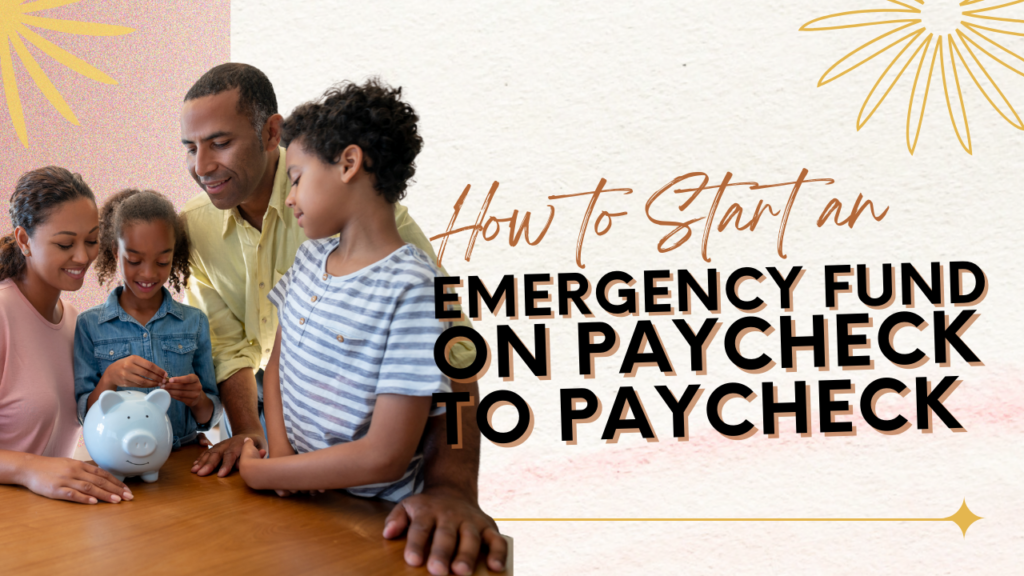Hey fellow moms! Navigating our family’s money maze can feel like juggling with one too many balls in the air. Ever thought about getting a financial advisor on board? It’s like having a money-wise friend who helps you make sense of everything from savings to college funds. But, just like picking the perfect preschool, finding the right financial advisor needs some homework.

Is hiring a financial advisor worth it? Well, it’s a mixed bag. On the bright side, they offer personalized financial planning, guide you through investment portfolios, and make retirement planning feel less like a chore. They’re about more than just investment advice; think of them as your partner in wealth management, navigating through complex financial situations and aiming for your family’s long-term objectives.
But here’s the catch – not all advisors wear the same cap. While fee-only advisors focus solely on your best interests, others working on commissions might not. And let’s not forget, expertise comes with a price tag. Deciding whether the cost is a worthy investment for your family’s future or a strain on your finances is key.
So, before jumping in, consider your financial goals, the level of advice you need, and how much you’re willing to pay. Finding the right advisor could be the stepping stone to securing your family’s financial future.
Decoding the Financial Advisor Lingo

First up, it’s like learning a new language when we start exploring the world of financial advisors. There are certified financial planners, registered investment advisors, and a few more titles thrown into the mix. Here’s the scoop:
1. Certified Financial Planner (CFP)
These are the folks who’ve passed some tough exams to prove they know their stuff about personal finance and ethical standards. Think of them as the valedictorians of money management.
2. Registered Investment Advisor (RIA)
These advisors are registered with either the state or the federal government and can offer advice on your investment portfolio. They’re like the guidance counselors for your investments, helping you stay on track.
3. Fee-Only Advisors vs. Commission-Based
Fee-only advisors are like the all-you-can-eat buffet – you pay one price for everything, avoiding the worry of hidden costs. Commission-based advisors, on the other hand, get a cut from the financial products they sell you, which can sometimes mean their advice is more about their commission than your benefit.
Why Say ‘Yes’ to Financial Advisors?
Deciding on hiring a financial advisor can feel as daunting as choosing the right car seat – you want the safest option for your family. Here’s why saying ‘yes’ might be a good move:

1. Like Having a Smart Money Buddy
Imagine having a buddy who knows all about saving, investing, and making money grow. That’s what a financial advisor is like!
They’re experts in all things money – from figuring out how to save for college without breaking the bank to planning for those golden retirement years. They get to know what your family wants and needs, then they whip up a plan that fits just right.
It’s like having a personal coach cheering you on to financial fitness as they offer financial advice and brokerage services.
2. More Time for Fun and Games
Who here loves spending weekends figuring out stocks, bonds, or what the heck a Roth IRA is? Nope, didn’t think so! We’d rather be having fun with our kids, right? Well, a financial advisor takes all that finance homework off our plates.
They keep an eye on the money stuff, so we can spend time on the playground or snuggled up with bedtime stories. It’s like magically finding extra hours in our day for the fun stuff.
3. Drawing the Treasure Map to Your Dreams
Ever dream of a big family vacation to Disneyland, paying for college without drowning in debt, or maybe even retiring to a beach house?
A successful financial advisor helps make those dreams feel a lot more reachable. They sit down with us, listen to our wildest dreams, and then help draw the map to get there, step by step. They’re like the wise guides in adventure stories, leading the way to the treasure (or in our case, financial security).
But Wait, There’s a Catch…
Before you jump on the advisor bandwagon, let’s talk about the not-so-fun part. Here are some cons to consider:

The Money Talk: What’s This Going to Cost Me?
Alright, let’s talk dollars and sense. Hiring a financial advisor isn’t like grabbing a cup of joe; it’s more like investing in a fancy espresso machine. You know, the kind that promises all the bells and whistles. Some advisors charge a flat fee, which is like paying upfront for that espresso machine, no matter how many coffees you make.
Others work on an hourly fee, kind of like paying every time you want a cup. Then there are those who earn commissions, which can feel like getting a free machine but then paying more for special coffee pods forever.
Here’s the thing – these costs can add up faster than our kids outgrow their sneakers. We need to make sure that what we’re paying for financial advice doesn’t eat into the money we’re trying to save or grow. It’s all about balancing quality advice with what fits our family budget without squeezing it tighter than a packed lunch box.
Watch Out for the Sales Pitch: Are They Really Here for Me?
Now, onto something a bit trickier – potential conflicts of interest. Imagine going to a playdate, but instead of chatting about the best diaper brands, someone keeps trying to sell you their brand of vitamins. That’s what it can feel like with some financial advisors.
They might be more focused on selling you specific financial products because they get a bigger paycheck, not because it’s the best choice for your family. Not everyone with a financial advisor career is built the same.
Even John Hagensen, the partner and managing director of Creative Planning, admits to Business Insider that “many financial professionals who will claim to be financial advisors are contracted by insurance companies and/or broker-dealers and thus be compensated to sell products of those companies.”
It’s super important to find someone who puts your family’s best interests first, not just someone looking to make a quick buck off of us. We want advice that helps us grow our investment portfolio, not just their sales numbers.
One Size Fits Who? Making Sure the Advice Fits Your Family
And here’s the last piece of the puzzle – ensuring the advice we get isn’t just cookie-cutter. Our families are as unique as a homemade quilt, each with our own dreams, financial goals, and risk tolerance. Some advisors might try to apply a one-size-fits-all strategy, like suggesting the same college savings plan to everyone, regardless of whether we’re dreaming of a local college or Harvard.
Finding an advisor who takes the time to craft a personalized financial plan that fits our family’s specific needs, dreams, and financial situation is crucial. We’re not looking for generic advice; we want something that’s as tailored to us as our kids’ Halloween costumes.
Making the Big Decision: Do You Need a Financial Advisor?

Gather around, mom friends, because it’s decision time. Deciding whether you need a financial advisor is a bit like debating if you should get that minivan. It seems like a big investment and a grown-up move, but it could make life so much smoother.
Let’s break it down, shall we?
Untangling the Financial Web
First things first, let’s talk about our family finances. If you’re like me, your financial situation might sometimes feel like trying to untie a giant knot of necklaces. We’re talking about investments, savings, tax planning, and maybe even a retirement account that we’re not quite sure how to optimize.
A financial advisor is like that patient friend who sits down with you, untangles each chain, and lays them out neatly. They make sense of complex financial situations and investment opportunities, turning confusion into clarity.
When Life Throws You a Curveball
Life has a way of surprising us, right? Maybe it’s a new baby (surprise!), an inheritance, or deciding to start your own business. These are big, exciting (and sometimes scary) changes that can shake up our financial picture.
A financial advisor steps in like a seasoned guide, helping us navigate these new waters. They’re there to ensure these life changes enhance our family’s financial journey, not derail it.
Mapping Out Your Dreams
Now, let’s dream a bit. We all have those big dreams tucked away, like retiring in a beach house or sending our kids to college without the mountain of student loans. These dreams don’t have to stay in our imagination. Most financial advisors help draw the map to reach those destinations. They sit with us, plot out the course, and keep us on track, just like a GPS for our financial goals.
So, How Do We Decide?

1. What Do You Need Help With?
Take a moment to think about your family’s finances. Is there a specific area that feels overwhelming? Whether it’s saving for college, retirement planning, or managing an investment portfolio, pinpoint what you need help with. This is the first step in deciding if a financial advisor is right for you.
As Rae Hartley Beck writes in Forbes: “The best financial planner is the one who can help you chart a course for all your financial needs. This can cover investment advice for retirement plans, debt repayment, insurance product suggestions to protect yourself, your family and estate planning.”
2. The Type of Advice You’re After
Next up, consider what kind of advice you’re looking for. Are you in need of someone to manage your investments, offer tax planning strategies, or provide a comprehensive financial plan? Knowing what you want out of the relationship can help you find the right advisor for your family.
3. Understanding the Costs
Let’s talk turkey. Or in this case, money. Knowing how much a financial advisor costs is crucial. Some work on a flat fee, others might charge an hourly rate, and some earn commissions from the products they recommend. Get the lowdown on these costs to understand what fits within your budget.
4. What Can You Afford to Pay?
Finally, decide how much you’re willing to invest in this service. Just like we budget for groceries, family outings, or that minivan, figuring out what you can comfortably pay for financial advice ensures you’re making a wise decision for your family’s finances and future.
Who Needs a Financial Advisor?

Let’s face it, our financial lives can be as varied as our kids’ personalities. Some of us might be juggling the family budget and saving for those never-ending school supplies, while others are pondering investment portfolios or how to save for retirement without giving up all of today’s joys.
If your financial situation feels more complicated than a multi-step math problem, or if you’re facing big life changes (hello, new baby or career shift!), it might be time to bring in a pro. Also, if you have dreams that seem a bit out of reach – like buying a home, saving for college, or ensuring a cushy retirement – a financial advisor could help turn those dreams into achievable goals.
Popping the Big Questions to Your Potential Financial Advisor
Before we say “I do” to a financial advisor, we need to have a heart-to-heart, just like any important relationship in our lives. Here’s a little cheat sheet of questions to get you started:

1. What are your credentials?
Look for those important letters like CFP (Certified Financial Planner) or RIA (Registered Investment Advisor), not just a bachelor’s degree to ensure they’ve got the expertise we’re looking for.
2. How do you get paid?
Is it a flat fee (like paying for a full course meal upfront), hourly rate (like a pay-as-you-go phone plan), or commissions (where they might get a slice of the pie for certain products they sell)? Knowing this can help us understand if they’re in it for our family’s best interests.
3. What’s your investment philosophy?
This is like finding out if they prefer organic, home-cooked meals over fast food. We want their approach to match up with our family’s financial health and goals.
4. Can I check your references?
Just like we’d ask around before hiring a new nanny, it’s totally okay to ask for references. Hearing from other families they’ve helped can give us peace of mind.
5. How will you help us reach our financial goals?
We’re looking for more than just a plan here; we want a roadmap with signs along the way to make sure we’re heading in the right direction.
6. What services do you offer?
Because our financial life isn’t just about investing. It’s about tax planning, retirement planning, and maybe even estate planning. We need someone who can help with all the pieces of the puzzle.
7. How often will we communicate?
We want someone who’s going to check in, not just at our annual review. Life happens fast, and we need an advisor who can keep up.
Skip Schweiss, chief executive of Sierra Investment Management and board chair of the Financial Planning Association, says in Buy Side that once you’ve whittled down your list of financial advisors to two or three, “you should interview them because ideally you’d like to stay with a provider for a long time [and] have a really good relationship with them.”
The Bottom Line: Is a Financial Advisor Right for Your Family?
We’ve talked pros, cons, and considerations, so what’s the verdict? Well, much like deciding on whether to work or stay home after baby, the answer is personal. It boils down to your family’s unique financial situation, your goals, and whether the value an advisor brings is worth the cost to you.

- Peace of Mind: For many, knowing a professional is managing their financial future can bring immense peace of mind, freeing them to focus on family time.
- Empowerment Through Education: A great advisor doesn’t just manage your money; they educate you, making you smarter about your finances. It’s empowering.
- The DIY Route: Remember, the DIY route is always an option. With a plethora of resources available, some families choose to manage their finances on their own. If you’re inclined to learn and have the time, this could be a rewarding path.
Choosing a financial advisor is akin to adding a member to your family team. They can be a guide, a mentor, and a partner in achieving your family’s financial dreams. But just like any important decision, it requires careful thought, a bit of research, and a clear understanding of your family’s needs and goals.
Whether you decide to go it alone or team up with a financial professional, the most important thing is moving forward with confidence, knowing you’re making the best decisions for your family’s future.
Ready to take the next step in securing your family’s financial future?
Start your search for the perfect financial advisor today and pave the way to financial peace of mind.




